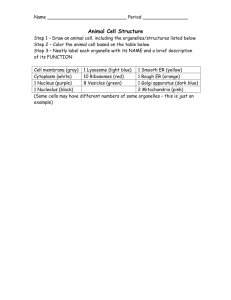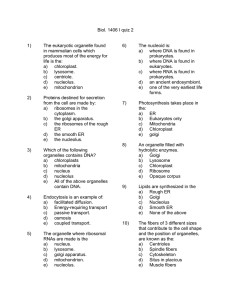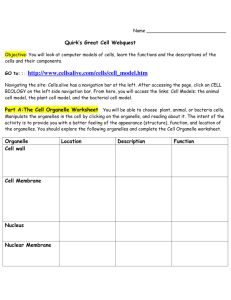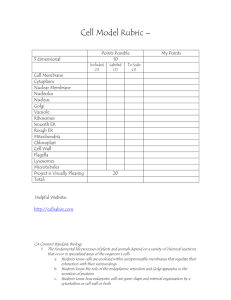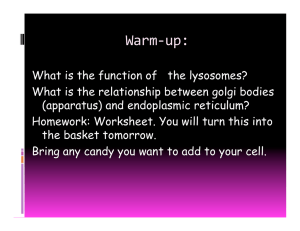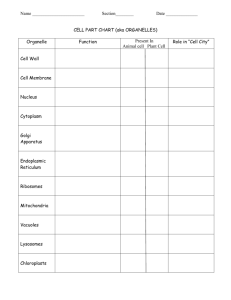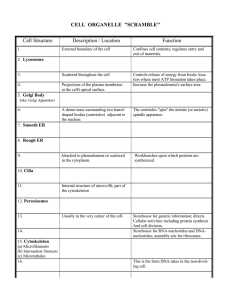Biol. 1406 I quiz 2 e) nucleolus.
advertisement
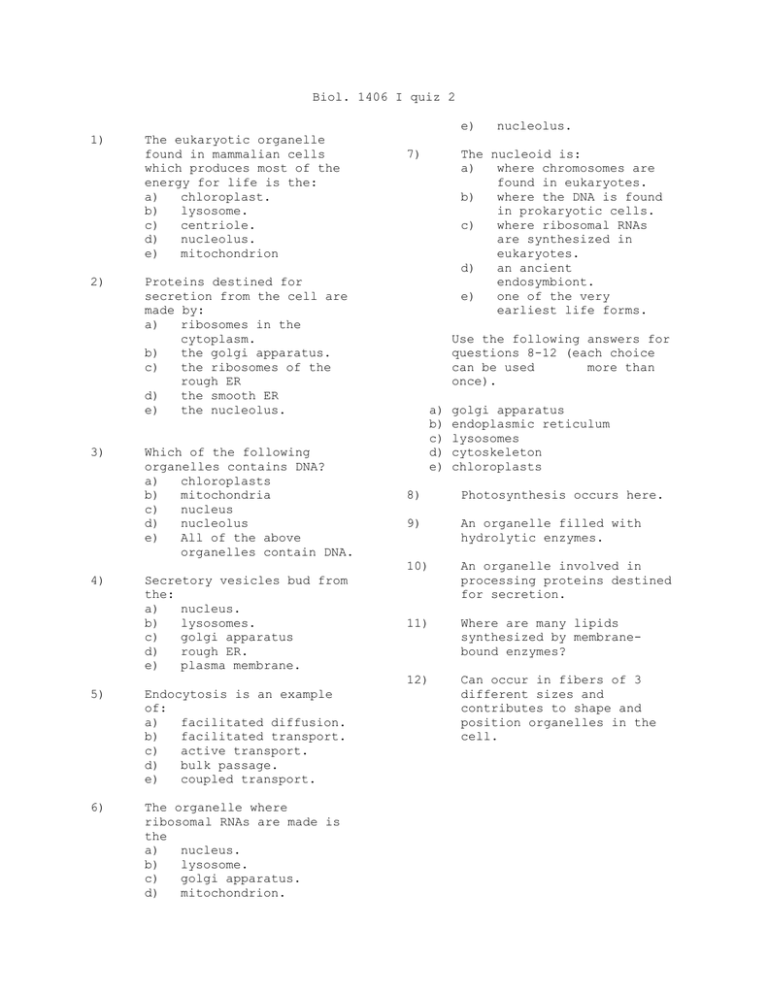
Biol. 1406 I quiz 2 e) 1) 2) 3) 4) The eukaryotic organelle found in mammalian cells which produces most of the energy for life is the: a) chloroplast. b) lysosome. c) centriole. d) nucleolus. e) mitochondrion 7) Proteins destined for secretion from the cell are made by: a) ribosomes in the cytoplasm. b) the golgi apparatus. c) the ribosomes of the rough ER d) the smooth ER e) the nucleolus. Which of the following organelles contains DNA? a) chloroplasts b) mitochondria c) nucleus d) nucleolus e) All of the above organelles contain DNA. Secretory vesicles bud from the: a) nucleus. b) lysosomes. c) golgi apparatus d) rough ER. e) plasma membrane. 5) Endocytosis is an example of: a) facilitated diffusion. b) facilitated transport. c) active transport. d) bulk passage. e) coupled transport. 6) The organelle where ribosomal RNAs are made is the a) nucleus. b) lysosome. c) golgi apparatus. d) mitochondrion. nucleolus. The nucleoid is: a) where chromosomes are found in eukaryotes. b) where the DNA is found in prokaryotic cells. c) where ribosomal RNAs are synthesized in eukaryotes. d) an ancient endosymbiont. e) one of the very earliest life forms. Use the following answers for questions 8-12 (each choice can be used more than once). a) b) c) d) e) golgi apparatus endoplasmic reticulum lysosomes cytoskeleton chloroplasts 8) Photosynthesis occurs here. 9) An organelle filled with hydrolytic enzymes. 10) An organelle involved in processing proteins destined for secretion. 11) Where are many lipids synthesized by membranebound enzymes? 12) Can occur in fibers of 3 different sizes and contributes to shape and position organelles in the cell.
